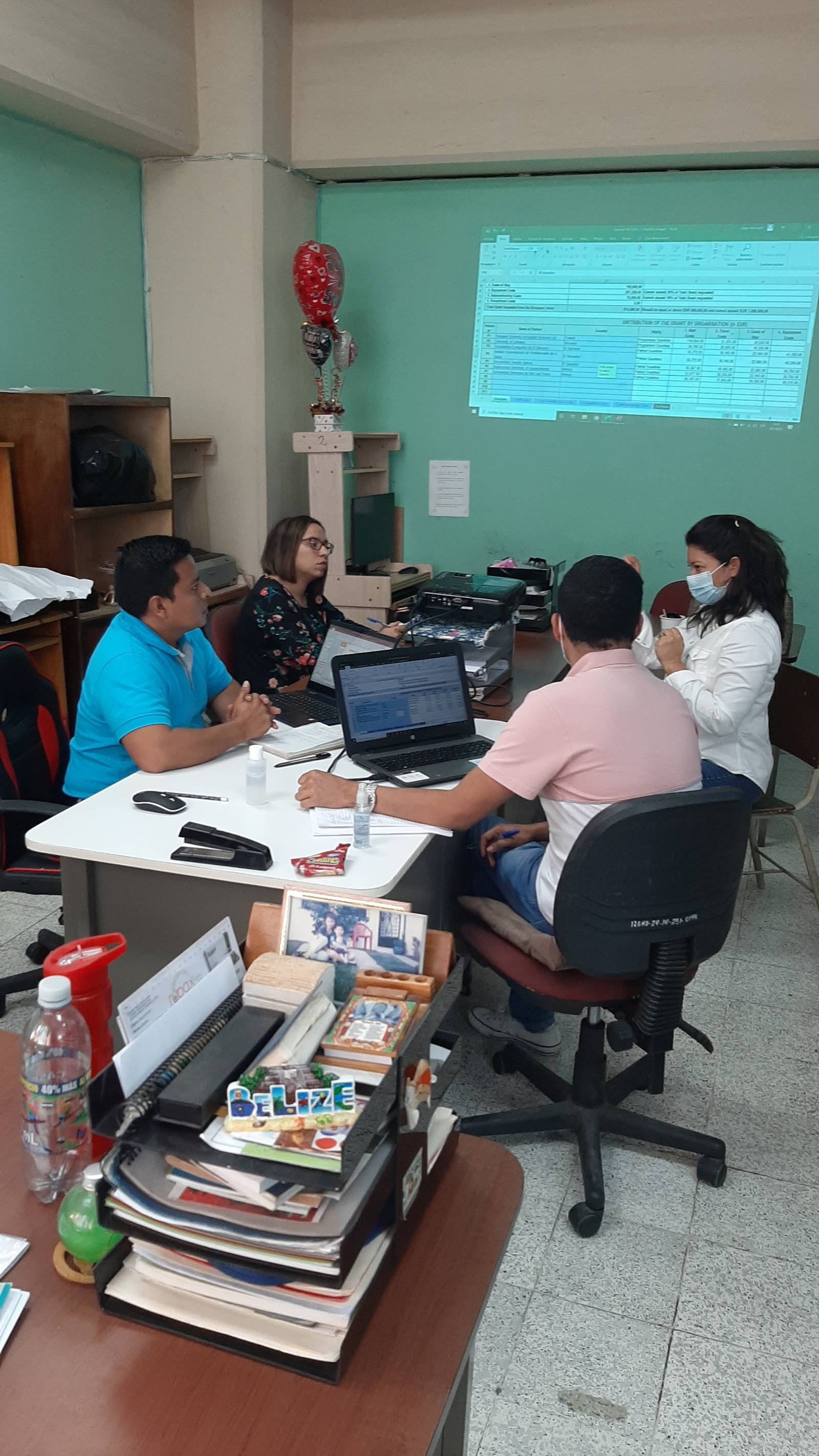Starting pilots through promotion of the SmartNurse project
On Thursday (July 22) the Project was present to the professors of nursing and the UES Curricular Subcommittee, in order to explain the project and remark the technological benefits that it will bring with the implementation of the methodology Smart to current nursing study program. The new study plan is currently under construction. The team that is building the study plan is also studying the options to integrate the SmartNurse methodology into the curriculum.
Pilot experience
On July 22, the first piloting was carried out with 13 nursing professors of the different active period that are: third Module V, fourth Module VII and fifth Module IX. The piloting consisted of filling out a survey in which the teacher gave his point of view and shared his experience with the methodological techniques that were used in teacher training, such as Active Learning, Inverted classroom, Case-based learning. Professors test the pedagogical methods with modern software (flipped, classroom, Kahoot, Padlet and flinga). Pilot tests will be documented. The feedback from teachers and students will be collected. Nursing Professors used digital tools, since the beginning of covid-19 pandemic.
Within the piloting, the experience of professors was introduced when using pedagogical methodologies with a digital approach, the piloting data collection was carried out by the University of Slovenia, which consisted of filling in a form with different questions alluding to what was implemented. Professors’ experiences were the following:
| Personal carrera de enfermería | Herramienta utilizada. | Experiencias |
| Modulo V. estudiantes 52
Licda. Sandra Dalila de Peña. Mssr. Anelca Ingles Arévalo. Licdo. Jorge Alberto Henríquez. Licdo. José Ismael López. |
ABC in Clinic. Inverted classroom. ABP in Clinical simulation. Kahoot in pharmacology. |
Digital tools create fundamental theoretical and practical knowledge in the nursing care of the people, families and communities, in response to the health-disease process throughout their life development.
Information and communication technologies designate, in turn, a set of innovations in the use of tools that allow a redefinition of the functioning of learning, which guarantees a real use of ICT in the content developed by teachers for students. students thus creating life skills. |
| Modulo VII estudiantes 44
Licda. Karen Uto Zepeda. Licdo. Juan José Luna Gómez. Licdo. Tobías Ernesto Rivas. |
Inverted classroom. ABC in Clinic. Kahoot in Pediatrics. |
|
| Modulo IX. estudiantes 48
Licda. Mayra Henríquez de Cortez. Licda. Sonia Margarita Siciliano. Mpd. Roxana Castillo.
Curso de investigación Mssr. Elsy Beatriz de Guzmán. |
Digital administration Digital Tutoring (Videos) Inverted classroom.
Inverted classroom. |
|
| Comisión curricular. Estudiantes 23
Mpcc. Yesenia Ivette Flores. |
ABP clinical neonatal |
|
| Cursos de profesionalización. Estudiantes 21
Mssr. Telma Lorena Díaz.
|
ABP Clinical comunitary |
The first piloting with students took place on August 11, 2021 on the Google Meet platform. The objective of the piloting was to obtain quantitative and qualitative results in relation to the digital preparation, skills and attitudes of nursing students based on the methodology used by their teachers in the development of each unit, course or subject distributed in the third years to fifth years of degree. Previously, the students were explained what the piloting consisted of. The piloting needed 300 nursing students distributed among the 5 Institutions of Higher Education (IES). In total, 415 students participated which 64 were from UES.
Like the teaching staff, the students filled out a form, expressed their points of view and their experience with each of the digital methodologies. The SmartNurse methodology enriches its construction with the experiences of the pilot tests, especially the ethical aspects and the use in different contexts are the main interest in the development of the project.
80% of the students approve the Smart Nurse methodology, referring to the fact that HEIs must guarantee virtual spaces and tools such as equipment to be used to take part in its implementation in El Salvador.

